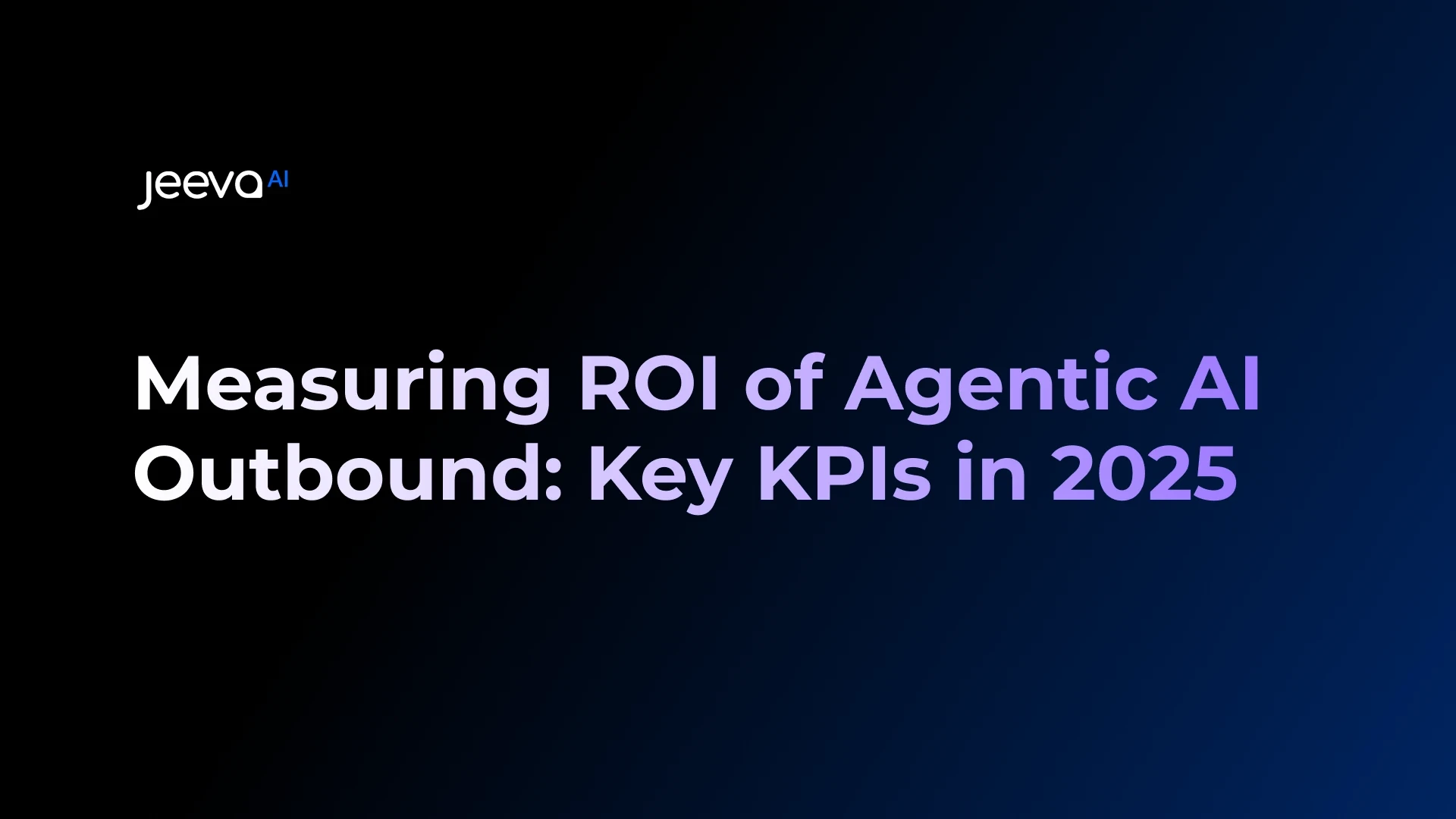Hook: “Yesterday’s AI cadence was crushed; today it’s in spam here’s why.”
If you’re running high-volume, AI-powered email campaigns, deliverability can shift overnight. Your best-performing sequence last week could be flagged as spam today crippling the pipeline, tanking reply rates, and wasting rep time on invisible emails. With Gmail, Yahoo, and Outlook now enforcing a strict 0.3% spam complaint ceiling for bulk senders (>5,000 emails/day), and AI-generated content flooding inboxes, getting your campaigns to the primary tab is harder than ever. Tighter provider rules, smarter spam filters, and even subtle missteps in authentication or content can quickly push your sender reputation into the red.
Here’s how to diagnose, fix, and future-proof your AI email deliverability without guesswork.
The 2025 Deliverability Landscape: Why It’s Tougher Than Ever
Hard spam-rate ceiling:
Gmail, Yahoo, and Outlook throttle or block senders with >0.3% user-reported spam for 3-7 days. Cross that line, and your sends are throttled or land in spam tabs.
Sources: Google Help, senders.yahooinc.com, MailgunAI spam surge:
Barracuda found AI-generated copy in most spam caught April 2025. Low-variation GPT content is aggressively fingerprinted.
Infosecurity MagazineGlobal inbox placement drop:
2025: average deliverability fell to 79% worldwide, 85% in the U.S. Sloppy list hygiene and rule changes = lost pipeline.
Validity, TrulyInboxPatience cliff:
53% of users abandon after 3s; failed images or retries in the spam tab kill customer experience and waste personalisation.Personalisation dividend:
AI-personalised emails cut complaint rates by 45-60% compared to static templates (Iterable, Mailgun). In 2025, smart sequencing isn’t a “nice to have”—it’s a compliance moat.
Why Deliverability Tanks in AI-Powered Campaigns
Template Similarity:
LLMs can over-optimize a single “winning” variant, triggering SpamBrain’s n-gram pattern detection.Volume Spikes:
Autonomous agents ramp send volume faster than new domains warm up, crashing sender reputation.Cold Lists & Low Engagement:
AI can scrape huge lists; poor targeting tanks opens and future mail is flagged as unwanted.Authentication Gaps:
SPF/DKIM might pass, but if DMARC alignment fails (especially on new subdomains), mail lands in quarantine.Missing One-Click Unsub:
Bulk senders must have RFC 8058 one-click unsubscribe headers—without it, users can only hit “spam.”
Five-Step Diagnostic Flow: 15-Minute Deliverability Triage
Step | Metric / Tool | Red Flag Threshold | Fix |
1 | Auth Check | DMARC fail >2% | Align “From:” and DKIM d= domain; rotate to 2048-bit keys. |
2 | Spam-Rate Trend | >0.1% 3-day avg (yellow); >0.3% (red) | Pause low-intent sequences; prune non-opens. |
3 | Bounce & Block Codes | Hard >2%; Soft >4% | Verify addresses; throttle volume; watch 421/450 temporary blocks. |
4 | Content Inspection | Spam words, >15kB HTML, heavy images | Strip fluff; default to plain-text; compress images. |
5 | Engagement Loop | Opens <12% cold; <20% warm | Tighten ICP filters; personalise subject lines and first 30 characters. |
Tools: dmarcian.com, Google Postmaster, ESP logs, Mail-Tester, Mailtrap
AI-Specific Pitfalls & Jeeva AI Safeguards
Pitfall | Root Cause | Jeeva AI Safeguard |
Copy Homogeneity | Same LLM prompt → near-clone emails | “Variant Bloom” model: 10–20 interchangeable phrasings + persona hooks |
Unwarmed Domains | Agents spin new sub-domains for parallel tracks | Auto-warm routine: gradual ramp, engagement-weighted sampling |
List Explosion | AI scrapes broad job titles | Real-time intent/technographic filters trim 40%+ unqualified records |
Over-sending | 24/7 bot queues, no human cooldowns | Send-window guardrails: recipient time zones, frequency caps |
Auth Drift | Programmatically created senders miss DNS updates | Platform-enforced SPF/DKIM checks; DMARC mis-align alerts within 10 min |
30-60-90-Day Deliverability Recovery Plan
0–30 Days: Stabilize
Freeze sends from red-flag domains.
Align SPF, DKIM, DMARC; add BIMI if possible.
Implement one-click unsubscribe headers.
Success KPI: Spam rate <0.1%, Auth pass = 100%
31–60 Days: Optimize
Enable Jeeva “Variant Bloom” & intent scoring.
Cut the cold list size 30–50%.
A/B test plain-text vs HTML content.
Success KPI: Open rate +15%, Bounce <2%
61–90 Days: Scale Safely
Introduce warmed sub-domains for volume.
Activate real-time deliverability dashboard alerts.
Layer in regional send-time AI (GEO-aware).
Success KPI: Green reputation in Gmail & Yahoo dashboards across all sender IDs.
What is an acceptable spam-complaint rate in 2025?
0.3% is the hard ceiling Gmail, Yahoo, and Outlook share but smart senders stay under 0.1%.
Deliverability in US vs EU vs APAC (Different Privacy Laws & FBL Coverage)
US:
Strict spam-complaint caps and FBLs (feedback loops) on Gmail/Yahoo; must honor one-click unsubscribe within 48 hours.EU:
GDPR requires opt-in and explicit consent tracking; keep records and respect DSRs (data subject requests).APAC:
More variable laws—check local anti-spam acts, but complaint thresholds still apply.
Localized campaign strategies and regionalized sender domains can boost both compliance and inbox rates.
FAQ: AI Deliverability Troubleshooting
Q1. What spam-complaint rate do Gmail & Yahoo allow in 2025?
Stay below 0.3%; best-in-class senders target <0.1%.
Q2. Does AI-generated copy increase spam risk?
Not by itself—volume, reputation, and engagement matter most.
Q3. How do I add one-click unsubscribe?
Insert “List-Unsubscribe” and “List-Unsubscribe-Post: List-Unsubscribe=One-Click” headers; honor requests within 48 hours.
Q4. Which tool shows my Gmail spam rate?
Google Postmaster Tools graphs user-reported spam, domain reputation, and authentication pass rates.
Q5. What’s the fastest fix for sudden inbox drops?
Pause high-volume sequences, check DMARC alignment, warm volume back up while monitoring Postmaster.





